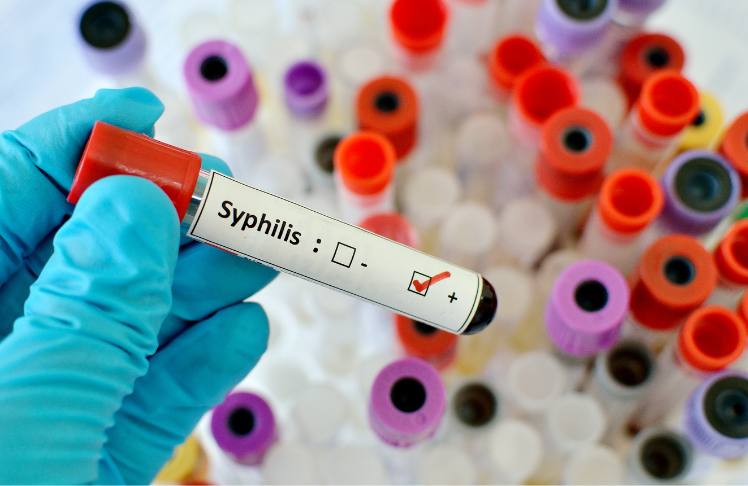
By Aneesa Grant, The Portland Medium
According to Multnomah County health officials, the County has seen a steady rise in syphilis cases since 2001. In 2010, Multnomah County reported 30 syphilis cases. However, in 2022, there were 817 cases, marking a 218% increase from six years prior. This rise in syphilis cases has come with an increase in congenital syphilis (CS), which occurs when a pregnant person with syphilis passes the infection to their baby during pregnancy.
The County’s Disease Intervention Services (DIS) team began offering free tests at a mobile site in December 2019. Still, the COVID-19 pandemic forced the testing site to close for one year. However, the team restarted in March 2021 and has been providing weekly tests to the community ever since. According to Marsha Brumbaugh, many of her patients do not know what syphilis is due to a lack of education.
“There’s just not enough information,” says Brumbaugh.
Since 2001, men who have sex with men were initially the most at-risk group. However, the rise in syphilis cases among females has surged, with females making up 23% of total cases in 2022 compared to 7% of total syphilis cases in 2013. With this rise in female cases, there has been a surge in CS, which can cause stillbirths and lifelong health problems in fetuses.
The DIS team has increased their outreach efforts to the community of people experiencing homelessness, recognizing that many people who test positive may not have phones or fixed addresses. The team has gone above and beyond to establish relationships with people in homeless camps by offering health kits and coupons for free tests. The team incentivizes patients with gift cards to come back to future appointments and to bring in their sexual partners to get tested as well.
The County provides temporary housing in a hotel while a patient completes their treatment. Other times, a nurse and outreach worker will meet the patient where they are living and accompany them to their appointment to receive treatment. When treatment in a clinical setting is a barrier, outreach workers have found that sometimes the only way for a pregnant person to receive treatment is in the setting of where they live.
Multnomah County’s sexually transmitted infection outreach programs have been around since the 1970s. However, in 2017, the DIS team decided they could no longer rely on the usual networks to find people who might be testing positive and set out to find innovative ways to reach them. “Our staff just doesn’t give up,” said David Hamel, DIS program manager. “We make a pledge with patients that we will go and see them and help them get to an appointment. And we don’t like to break promises we make.”
Health officials urge all adults under age 45 to be screened for syphilis at least once if they have not been screened since Jan. 1, 2021, and at least every 12 months if there are indications for more intensive screening. More information on sexually transmitted infection screening recommendations can be found on the Oregon Health Authority website.
Multnomah County has dedicated resources and personnel to respond to the rise in syphilis cases because this is a priority for the County and worth the resources.
“To truly help impact communities, these staff can’t only sit behind a desk and answer a phone,” said Kim Toevs, communicable disease and harm reduction programs director.















